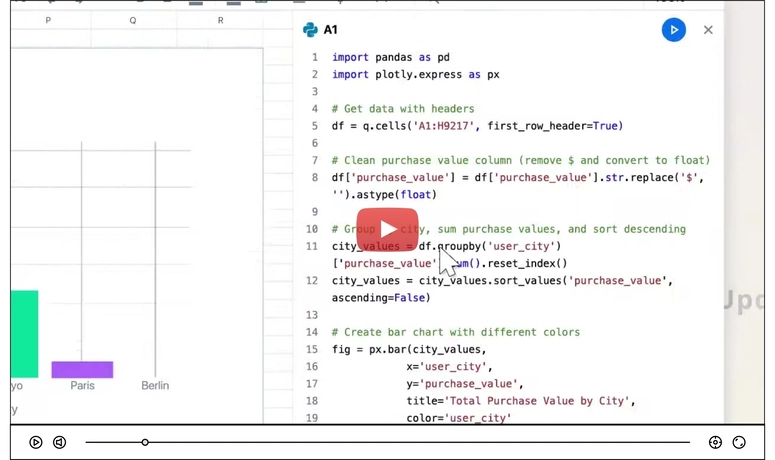Table of Contents
- Introduction
- Why Analytics Matter for Founders & Devs
- What Are Web Analytics?
- Types of Analytics Tools
- Top Platforms Compared
- Choosing the Right Tool
- Integrating Analytics into Your App
- SEO Tips: Amplify Your Reach
- Best Practices & Caveats
- Bonus: Trivia & Quiz
- Conclusion
- Further Reading
Introduction
If you're a founder or a developer building in public, sharing your journey is half the battle. The other half? Understanding your audience so you can build what they actually want.
This guide will help you:
- Pick the right analytics tool
- Track what matters
- Grow your audience
- Optimize your product
- Respect user privacy
Why Analytics Matter for Founders & Devs
1. Validate Your Ideas
See which features or blog posts resonate most.
2. Engage Your Community
Identify your core audience and tailor content or features for them.
3. Showcase Growth
Share real metrics publicly to build trust and attract investors or users.
4. Optimize Your Funnel
Spot where users drop off and fix it fast.
5. Improve SEO
Use data to refine content strategy and boost organic reach.
What Are Web Analytics?
Web analytics track how users interact with your app or site, providing insights like:
- Traffic sources (Twitter, Hacker News, Google)
- Popular pages & features
- User journeys & drop-offs
- Conversion rates
- Geography & devices
Types of Analytics Tools
| Type | Description | Examples |
|---|---|---|
| Hosted (Cloud) | Managed, quick setup | Google Analytics, Fathom, Plausible |
| Self-hosted | Full data control, privacy | Umami, Matomo, PostHog |
| Privacy-focused | Minimal data, GDPR-friendly | Fathom, Plausible, Umami |
| Product Analytics | Deep user behavior, funnels, retention | Mixpanel, PostHog |
Top Platforms Compared
| Feature | Google Analytics 4 | Plausible | Fathom | Umami | Mixpanel |
|---|---|---|---|---|---|
| Pricing | Free | Paid | Paid | Free (self-hosted) | Free + Paid |
| Hosting | Cloud | Cloud | Cloud | Self-hosted | Cloud/self-hosted |
| Privacy | Data shared with Google | GDPR-friendly | GDPR-friendly | GDPR-friendly | GDPR-friendly |
| Custom Events | Yes | Yes | Yes | Yes | Yes |
| Funnels & Retention | Basic | Basic | Basic | Basic | Advanced |
| Open Source | No | No | No | Yes | Yes |
| Integrations | Extensive | Limited | Limited | Limited | Extensive |
Choosing the Right Tool
For Founders Building in Public
Want to share growth stats?
Use Plausible or Fathom — simple dashboards, privacy-friendly, easy to screenshot/share.Need deep product insights?
Add Mixpanel or PostHog for funnels, retention, and cohort analysis.Care about privacy/data control?
Self-host Umami or PostHog.
For Devs Building in Public
Quick setup, minimal fuss?
Use Plausible or Fathom.Custom event tracking?
All support it, but Mixpanel shines for complex flows.Open-source preference?
Go with Umami or PostHog.
Integrating Analytics into Your App
Example: Adding Fathom to a React + TypeScript App
import Script from 'next/script';
export default function App({ Component, pageProps }) {
return (
<>
<Script
strategy="afterInteractive"
src="https://cdn.usefathom.com/script.js"
data-site="YOUR_SITE_ID"
data-spa="auto"
/>
<Component {...pageProps} />
</>
);
}
Tracking Custom Events
window.fathom.trackGoal('GOAL_ID', 0);
Pro Tip
- Use environment variables to toggle analytics in production only.
- Combine multiple tools (e.g., Plausible + Mixpanel) for broad + deep insights.
SEO Tips: Amplify Your Reach
1. Track Organic Traffic
Use analytics to see which keywords and pages bring in organic users.
2. Identify High-Performing Content
Double down on topics that attract and engage visitors.
3. Reduce Bounce Rate
Spot pages with high bounce and improve content or CTAs.
4. Optimize Conversion Paths
Analyze funnels to convert visitors into signups or customers.
5. Leverage UTM Parameters
Track marketing campaigns precisely.
https://yourapp.com/?utm_source=twitter&utm_medium=social&utm_campaign=launch
6. Content Strategy
- Publish build-in-public updates regularly.
- Use analytics to refine topics.
- Target long-tail keywords relevant to your niche.
7. Technical SEO
- Ensure fast load times (analytics scripts should be async/deferred).
- Use semantic HTML and proper metadata.
- Avoid blocking crawlers with misconfigured robots.txt.
Best Practices & Caveats
- Respect privacy: Be transparent, get consent if needed.
- Focus on actionable metrics: Don’t drown in vanity stats.
- Iterate fast: Use data to guide weekly improvements.
- Share your journey: Post growth charts, lessons learned.
- Avoid over-engineering: Start simple, add complexity as needed.
- Be aware of blockers: Some users block analytics scripts.
Bonus: Trivia & Quiz
Did You Know?
- Mixpanel was co-founded by Suhail Doshi, who later built Mighty browser.
- Plausible is fully open-source and can be self-hosted.
- Google Analytics 4 is event-based, unlike the old session-based Universal Analytics.
Quick Quiz
- Which tool is best for privacy-focused, open-source analytics?
- What’s a key SEO metric to track for content strategy?
- True or False: You should always track every user event.
Answers
- Umami
- Organic traffic & bounce rate
- False — focus on actionable events.
Conclusion
For founders and devs building in public, web analytics are your secret weapon. They help you:
- Validate ideas
- Engage your community
- Optimize your product
- Grow your audience
- Showcase your journey
Pick the right tool, track what matters, and iterate fast. Combine this with smart SEO, and you'll build a product people love and find.
Further Reading
- Plausible Docs
- Fathom Analytics
- Umami GitHub
- Mixpanel
- PostHog
- Google Analytics 4
- Ahrefs SEO Blog
- Backlinko SEO Guides
Build. Measure. Learn. Share. Repeat. 🚀



Top comments (0)